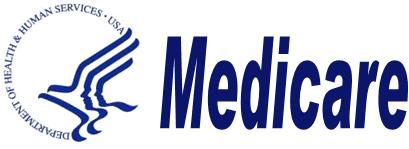 Medicare has recently decided to include the computed tomography (CT) component in lung cancer screening in its health coverage — a decision that could greatly improve access to lung cancer-related care among seniors deemed high-risk for the disease.
Medicare has recently decided to include the computed tomography (CT) component in lung cancer screening in its health coverage — a decision that could greatly improve access to lung cancer-related care among seniors deemed high-risk for the disease.
Laurie Fenton Ambrose, the President and the CEO of the Lung Cancer Alliance (LCA), said in a press release: “Medicare got this right. Screening coverage will help save thousands of seniors each year from the nation’s leading cancer killer. Screening programs can also help lower smoking rates. The process may even lead to better understanding of addiction as well as lung cancer in those who have never smoked.”
Past studies have proven that CT lung cancer screening is the only cost-effective test can that significantly reduce mortality related to the disease. Experts expect over 220,000 individuals will be diagnosed with lung cancer this year, but groups such as the LCA believe that by enhancing screening initiatives across the country, America will experience a significant reduction in the 160,000 people who die every year because of the disease.
The past president of The Society of Thoracic Surgeons, Douglas Wood, said: “This is a great day for those at high-risk for lung cancer and their families. Now, we can save tens of thousands of people each year from this terrible disease that now kills more women in wealthy countries than breast cancer.”
[adrotate group=”3″]
Medicare will cover the exams for individuals aged between 55 and 77 years old with a smoking history of 30 pack-years that still smoke or have quit in the last 15 years. Clinical and follow-up data collected from the scans will be submitted to an approved data registry.
“Medicare coverage of CT lung cancer screening will help screening programs nationwide save lives. If older current and former smokers and their doctors decide that screening is warranted, patients should seek out an ACR lung cancer screening center. Together, we will complete the first major blow against lung cancer,” concluded Ella Kazerooni, the chair of the American College of Radiology Lung Cancer Screening Committee and American College of Radiology Thoracic Imaging Panel.
While an infrastructure to address the increased screening demand that will occur is currently being established, there are concerns that lung cancer treatment options may not be able to keep up with the demands of increased screenings. Last month, Sanovas, Inc., released a public warning about how the United States’ healthcare system is currently facing a shortage of treatment resources resulting from the increased number of early lung cancer patients that will seek treatment right after their diagnosis. Gordon H. Downie, MD, PhD, FCCP, a pulmonologist at Northeast Texas Interventional Medicine, and one of the Company’s clinical advisers, said, “Medicare coverage has a ‘good news/bad news’ scenario to it at this time.”

